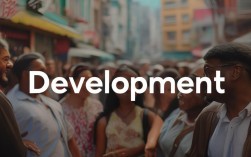decision在雅思口语中的核心应用与高分策略
在雅思口语考试中,“decision”是一个高频且实用的关键词,贯穿于Part 1、Part 2和Part 3的多个话题,无论是描述日常选择、重大人生决定,还是探讨决策的过程与影响,掌握与“decision”相关的表达、逻辑和词汇,能有效提升回答的深度和流利度,本文将从核心词汇、话题场景、高分技巧和常见误区四个维度,系统解析如何在雅思口语中灵活运用“decision”,并附实用案例与FAQs。

核心词汇与短语:丰富decision的表达层次
“Decision”本身是基础词汇,但高分回答需要通过搭配、同义替换和具体化描述展现语言能力,以下是围绕“decision”的核心扩展:
| 类别 | 词汇/短语 | 例句 |
|---|---|---|
| 同义替换 | choice, option, determination, resolution, verdict | Making a choice between university majors was tough for me. |
| 决策过程 | make a decision, reach a decision, decide on/against, deliberate over | I deliberated over for weeks before deciding to study abroad. |
| 决策结果 | outcome, consequence, impact, aftermath | The outcome of my decision to learn guitar was beyond satisfying. |
| 决策修饰词 | big/important/tough decision, snap decision, well-informed decision | Quitting my job to start a business was a bold decision. |
| 决策相关动词 | hesitate, regret, second-guess, commit to | I don’t regret my decision to pursue a master’s degree. |
示例:在回答“Describe a decision you made that changed your life”时,可组合使用:
“After deliberating over the pros and cons for months, I made a tough decision to switch careers. Although it was a snap decision initially, the outcome completely transformed my life.”
话题场景拆解:decision在不同口语部分的应用
Part 1:日常决策(频率与偏好)
Part 1常围绕“日常选择”展开,需用简短句子回答,突出细节。
-
高频问题:
- Do you like making decisions quickly?
- What kind of decisions do you make every day?
- Who usually makes important decisions in your family?
-
回答框架:观点 + 原因 + 例子(1-2句)。
“Yes, I prefer making snap decisions for trivial things like what to eat for lunch, as it saves time. However, for important matters, I need to deliberate over options carefully—like choosing my university major, I discussed with my family for weeks.”
Part 2:个人经历类话题(Describe a decision…)
Part 2要求描述具体事件,需用“故事逻辑”展开:背景→决策过程→结果→感受。
-
核心提示卡:
- What the decision was
- When and why you made it
- How you felt about it afterward
-
高分回答结构:
- 引入:点明决策的重要性(“One life-changing decision I made was to move to another city for my internship.”)
- 过程:描述犹豫、对比选项、寻求建议(“I hesitated between staying in my hometown for stability and pursuing the opportunity. I weighed the pros and cons and asked my mentor for advice.”)
- 结果与感受:强调影响(“The decision taught me to be independent, and although it was challenging initially, the outcome was rewarding—I gained valuable work experience.”)
Part 3:抽象讨论(决策的社会/心理层面)
Part 3考察深度分析,需从“个人→群体→社会”拓展,用逻辑连接词(However, Therefore, For instance)串联观点。
-
高频问题:
- Why do some people struggle with making decisions?
- How can young people improve their decision-making skills?
- Do you think technology has made it easier to make decisions?
-
回答思路:
“Some people struggle with decisions due to fear of failure or overthinking. For instance, when choosing a career, they might worry about making the wrong choice. To improve, young people could gather more information and start with small decisions to build confidence. As for technology, while it provides data, it can also lead to analysis paralysis—too many options may complicate rather than simplify decisions.”
高分技巧:让decision相关的回答更出彩
-
具体化细节:避免笼统描述,用数据、场景或感受增强真实感。
- ❌ “I made a decision to study hard.”
- ✅ “I made a firm decision to study 6 hours daily for the IELTS, tracking my progress in a notebook to stay motivated.”
-
运用逻辑连接词:展现思维的连贯性,如 Initially, I… However, after…, I realized… Finally…
-
情感词汇点缀:表达决策时的心理状态,如 I was torn between…, It was a nerve-wracking but rewarding decision.
-
避免重复:通过同义替换(如用 choice 替代 decision,用 consequence 替代 result)提升语言多样性。
常见误区与避坑指南
-
误区:过度使用简单句(I made a decision. It was a big decision.)
改进:合并句子,用从句或非谓语结构(Making a big decision requires careful consideration.) -
误区:只描述决策过程,忽略结果或感受
改进:遵循“背景-过程-结果-反思”的完整逻辑,体现思考深度。 -
误区:用词单一,缺乏同义替换
改进:积累同义词和短语(如 determination, resolution, verdict),根据语境灵活选用。
FAQs
Q1: 在雅思口语中,描述“重大决定”时,需要提到负面感受吗?
A1: 可以适当提及负面感受(如犹豫、压力),但最终需落脚到积极结果或成长,展现积极心态。“Although I was terrified of quitting my stable job, the decision pushed me to discover my passion, and I’ve never looked back.” 这样既真实又传递正能量。
Q2: 如何在Part 3中深入讨论“决策能力”这个话题?
A2: 可从“影响因素”(如教育背景、文化差异)、“培养方法”(如实践、反思)和“社会趋势”(如科技对决策的影响)三个层面展开。“In some cultures, family opinions heavily influence decisions, whereas in individualistic societies, personal values play a larger role. To cultivate decision-making skills, practicing with low-stakes choices—like planning a trip—can build confidence over time.”











